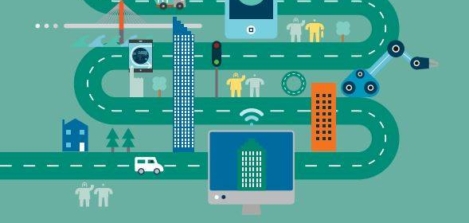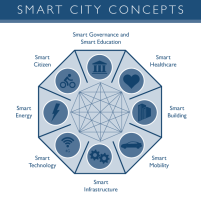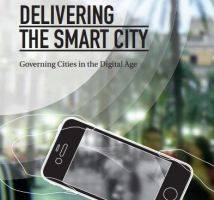December 6, 2017
Smart cities could lead to cost savings of $5 trillion for firms and governments, report claims
Smart city technologies could save businesses, governments and citizens globally over US$5 trillion annually by 2022 according to a new whitepaper from ABI Research (registration required). The new white paper analyses the scope for cost savings and efficiency as a driver for smart city deployments, smart technologies and the Internet of Things (IoT). According to the report, titled ‘Smart Cities and Cost Savings,’ the use and deployment of IoT and smart technologies will be pivotal to the future success of smart cities, but only if players collaborate to embrace a holistic approach. With higher concentrations of people and enterprises in cities as a result of urbanisation, smart city and IoT technology, along with new sharing and service economy paradigms, will be key for cities to optimise the use of existing assets, maximise efficiencies, obtain economies of scale and ultimately create a more sustainable environment. Automation, artificial intelligence, along with sensors, data-sharing and analytics, will all be critical in helping cities save costs.








 The changing energy demands of British cities are revealed in
The changing energy demands of British cities are revealed in 
 Global law firm Osborne Clarke has released its fourth
Global law firm Osborne Clarke has released its fourth 















May 27, 2015
Smart buildings, smart cities and the promise of infinite data
by Paul Doherty • Cities, Comment, Facilities management, Technology
(more…)